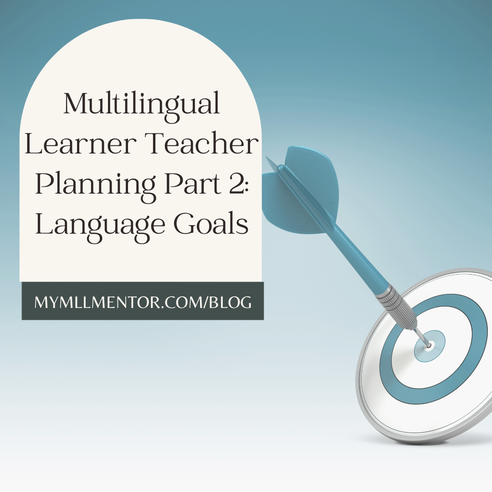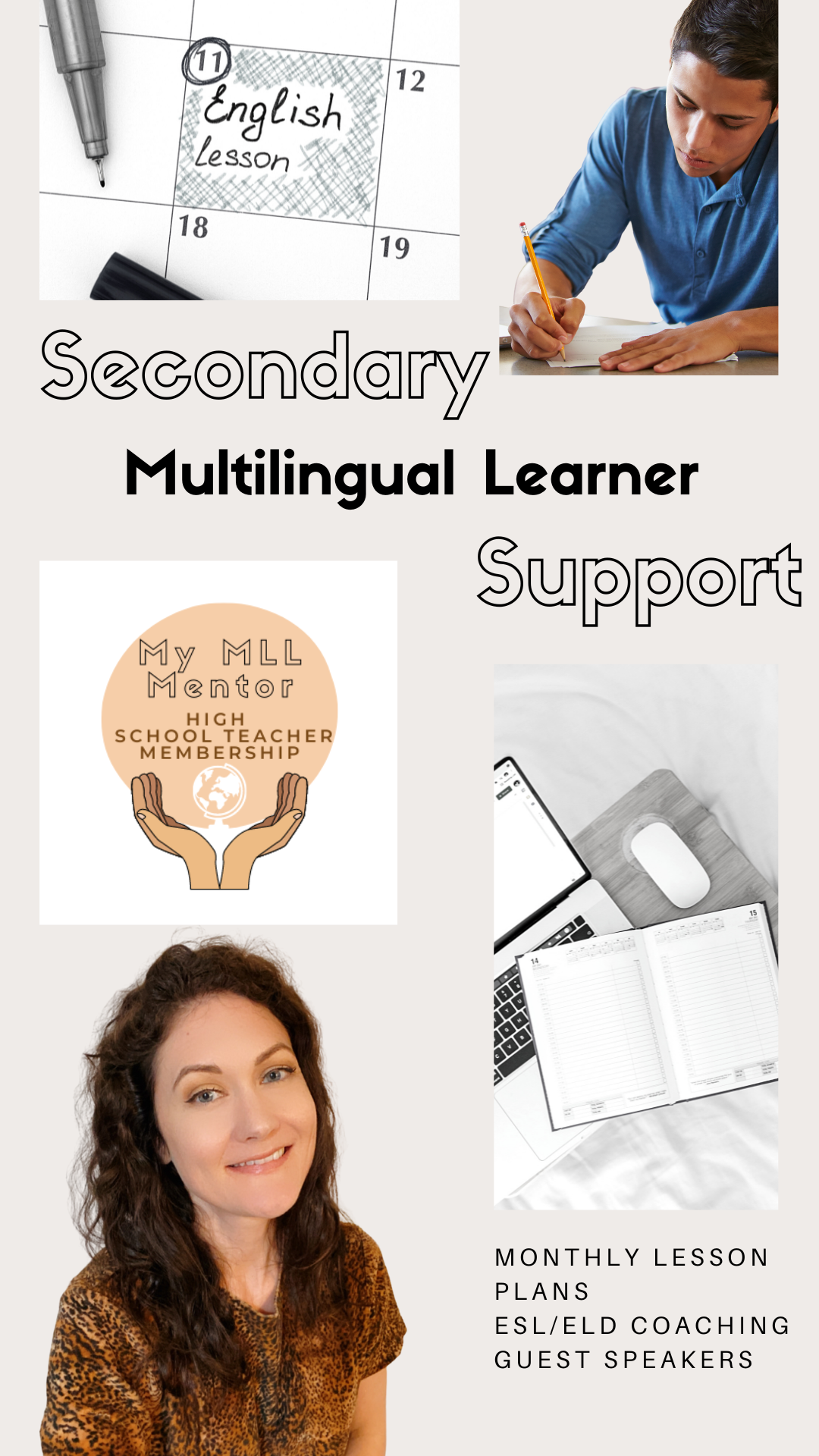|
Welcome back to part 2 of the Summer Multilingual Learner Planning Series. We are exploring all of the topics you will need as an educator serving multilingual learners and English learners for you to have a successful beginning of the school year. We started off reflecting on our year with a language lens. Part 1 was all about knowing your students and all of the assets they bring to our classrooms and schools. Head back to part 1 if you didn't get to read it yet! Once we have an idea on who our students might be by obtaining rosters or information from counselors and you have data on your students, you can then start getting an idea on what their language goals might be and start discussing them with your students in the first couple of weeks of school. Not only will help them understand their own language strengths and areas of growth, but it will help you plan your lessons! If you don't have rosters or are not sure who your students might be, no problem! This will still help you with the process once you do get them, and you will feel better equipped and ready to serve them. Hold one-on-one meetings When students understand the scores on their language assessment data, they have a better idea on what they personally need to work on to show growth on the next assessment. There's no better way to do this than to hold one-on-one meetings to show them their scores and help them understand what their focus should be throughout the school year. Holding these are recommended periodically through the year to take into account any new informal assessment data and show them their progress. Keeping track of progress can be done in your own data tracking sheet or by using any rubrics from your language assessment. I also have a Goal-Setting and Language Goals Tracker for students and teachers here if you need something to keep you on track. Here's some information from the tracker that you can use in your own tracking practices:
Continuing tracking progress with informal assessments Our language assessments can give us great insight into our student's language assets, but informal assessments held throughout the school year are invaluable since they give us feedback in real-time! And they don't have to be complicated and in-depth. Here are some easy informal assessments for language:
As you see growth, share it with students! It will help keep them motivated. You can also keep a student portfolio for them, either digitally like this one here or physically in a binder. Digitally, you can enter links in for work or just take photos of their work and insert them into slides. It's super easy to share with content teachers and parents as well! Lesson planning How do creating language goals with your students help you to lesson plan? For one, they assist you with creating language objectives. Language objectives, in conjunction with content objectives, help keep us laser-focused with what we want our multilingual learners to achieve- our grade-level content, of course! And when we know where our students need to be, we can then start planning for it! Since different language proficiency levels need different supports, when we know our student's levels, we can then:
The next part to the Summer Multilingual Learner Planning Series is all about how to effectively plan a lesson for your ESL class or ELD class! Stay tuned!
0 Comments
Leave a Reply. |
AuthorI support middle and high school teachers through monthly lesson plans, coaching, and guest speaker offerings in our Secondary ESL Teacher Membership. Archives
April 2023
Categories
All
|


 RSS Feed
RSS Feed
